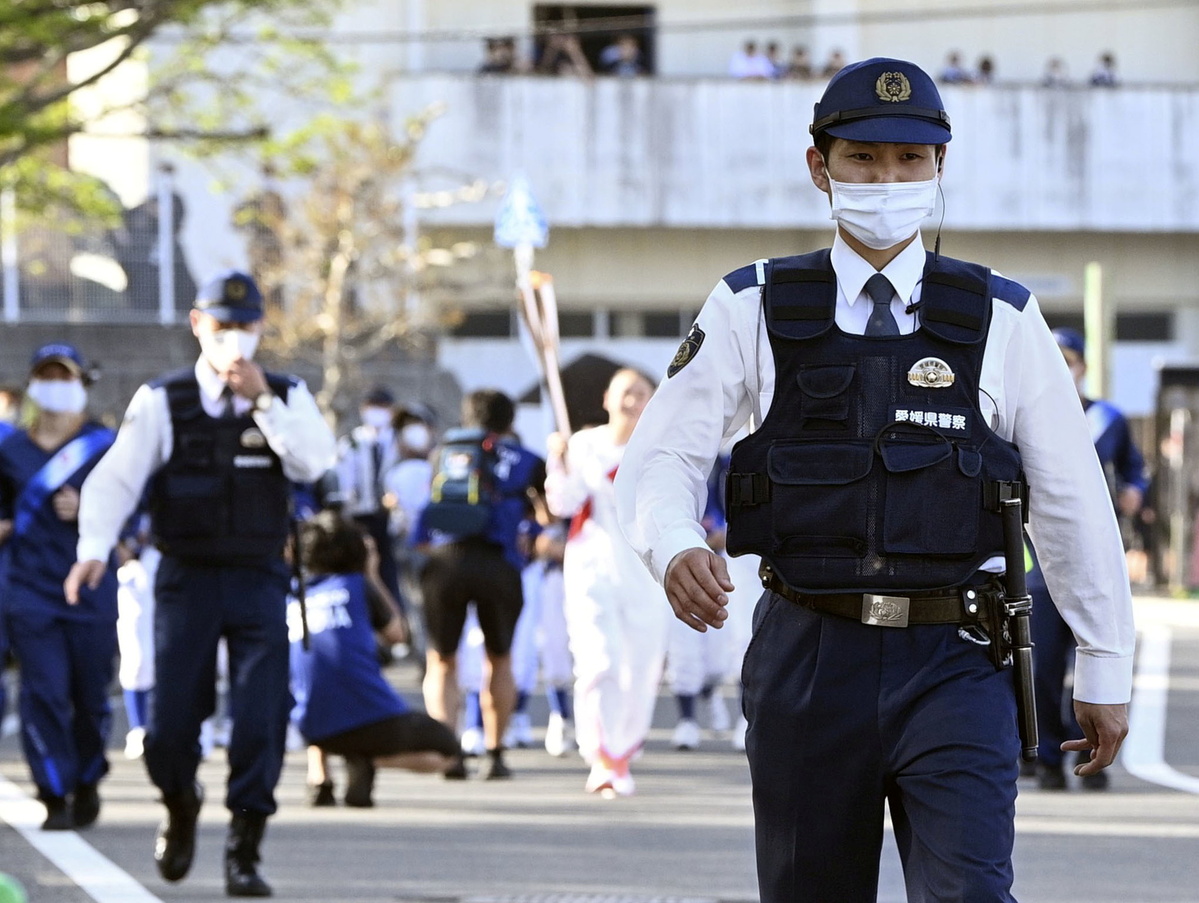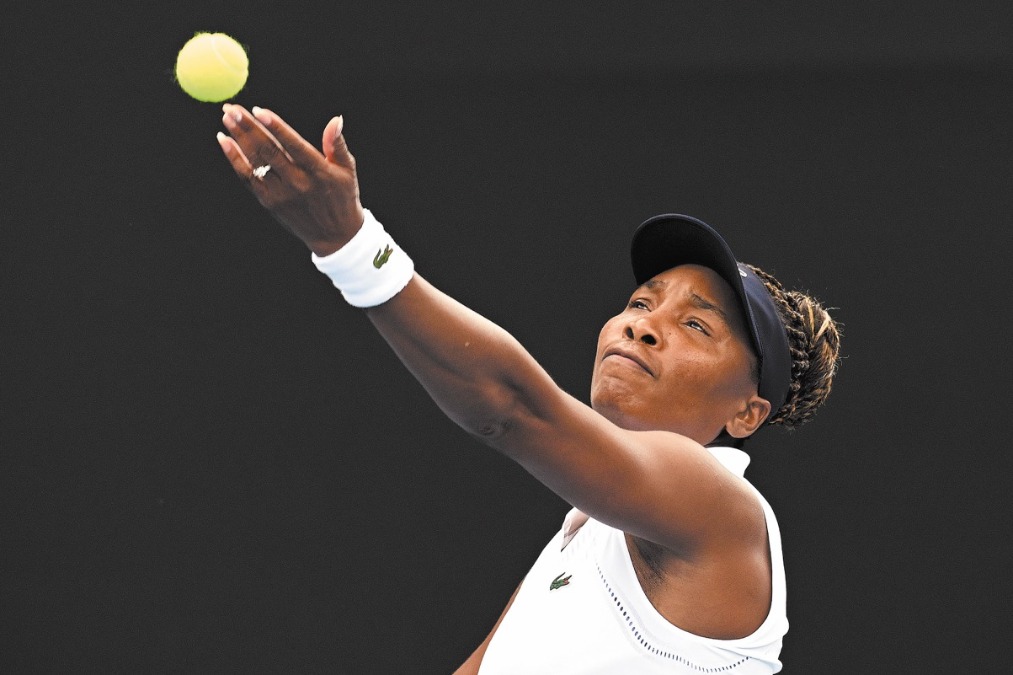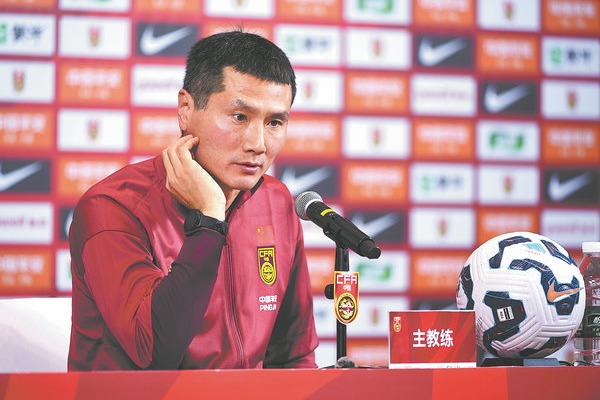Uncertainty abounds as Tokyo delays fan decision


Ruling on venue capacity postponed as Japan struggles to contain coronavirus
Japanese residents with tickets to the Tokyo Olympics may not know until weeks before the Games open if they'll be allowed to attend.
Fans from abroad have already been barred, and on Wednesday organizing committee president Seiko Hashimoto said a decision on venue capacity-or if there will be any fans at all, or just empty venues-may not be made until June. She had previously promised that decision for this month.
"We are still studying the timing,"Hashimoto said at a news conference in Tokyo after she and CEO Toshiro Muto finished an online, closed-door briefing with the International Olympic Committee executive board in Switzerland.
She said that June "was an option". "I guess we need a little more time to make a proper judgment," she added.
Government minister Taro Kano, who is in charge of the vaccine rollout in Japan, hinted last week that empty venues seemed likely as COVID-19 surges across Japan.
Hashimoto's backpedaling is typical of the ever-changing planning as virus cases rise in Japan with Tokyo's postponed Olympics set to open in three months in the midst of a pandemic.
Hashimoto acknowledged the low public support in Japan for going ahead with the Olympics, particularly since less than 1 percent of the population has been vaccinated. Polls repeatedly show 70-80 percent are opposed to going ahead with the Games.
"In local municipalities the situations are rather dire," Hashimoto said. "And in this context, Japanese citizens and residents have worries and concerns. For the safety and security of the Games, we must contain the spread of the virus as soon as possible."
Many of the worries now center around the torch relay.
On Thursday, organizers said that a policeman tested positive for COVID-19 a day after his assignment last week at the relay.
It was the first positive test connected to the relay since it began March 25 from northeastern Fukushima prefecture.
Organizers said the policeman, who is in his 30s, was assigned to control traffic on the April 17 leg in southwestern Kagawa prefecture. Local health authorities are investigating. Officials say the policeman was wearing a mask and taking social-distancing precautions and other measures.
Legs last week were run in a city park in Osaka and taken off the public streets. Something similar is expected for some legs on May 1-2 on the southern island of Okinawa.
The torch relay involves a total of 10,000 runners crisscrossing Japan until it arrives on July 23 at the opening ceremony in Tokyo. Organizers have warned that it may require further rerouting as conditions change.
Osaka and Tokyo were expected to come under new emergency orders this week. Tokyo governor Yuriko Koike has said measures needed to be taken "as soon as possible" to stem the spread. And Hashimoto acknowledged they were likely to come quickly into force.
Japan has attributed more than 9,600 deaths to COVID-19, good by global standards but poor by standards in Asia.
"If the coronavirus infection keeps getting worse, it's no time to be holding the Olympics," Kotaro Nagasaki, the governor of Yamanashi prefecture, said this week.
Yamanashi, the home of Mount Fuji, is located southwest of Tokyo.
Some Tokyo test events are also being postponed or rescheduled. Many that are going forward are being held without athletes-so-called operational events-or with only Japanese athletes.
An artistic swimming qualifying event in Tokyo that was first scheduled for earlier in the year, and then pushed back to early May, will now be held outside of Japan in June, swimming governing body FINA said in a statement.
It had to be moved, partially because a FINA diving event is set to take place in Tokyo from May 1-6 at the new Olympic swimming venue. It is to be held without fans, and will feature divers from abroad.
Olympic Minister Tamayo Marukawa last week said that all athletes might need to be tested daily during the Games. Japan's Kyodo news agency on Tuesday reported that daily saliva tests for athletes are being planned, quoting "officials with knowledge of the planning".
Hashimoto confirmed that "in principle, testing will be daily". Early plans had called for tests every four days.
This change is likely to appear in the second edition of the "Playbook", which is set to be published by the end of the month.
So far, the guide has established vague rules for 15,400 Olympic and Paralympic athletes and tens of thousands of others-judges, officials, media and broadcasters-for when they enter Japan.
A final edition of the Playbook is set to be published in June.
Japanese athletes have yet to be vaccinated, and officials repeatedly say there is no plan to do so. There would almost certainly be strong public opposition to any plan to push young athletes ahead of the elderly, medical workers and other vulnerable communities.
Agencies Via Xinhua
Most Popular
- China ties Iraq 0-0 in its U23 Asian Cup opening match
- A learning curve
- Russian team wins Harbin International Ice Sculpture Competition
- Worldloppet ski season opens with Changchun cross-country event
- Women's half-marathon draws 20,000 runners to Guangzhou
- Picture perfect





























